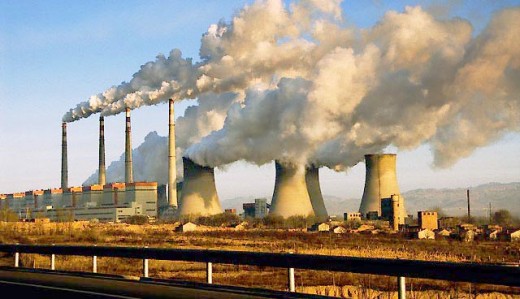In the past decade, the relationship between Africa and China has boomed, ranging from foreign aid and investment to extraction-for-repayment. The latter is a process of indirect payment of debt whereby China extracts natural resources equivalent to the amount owed by the debtor countries at prices set by obscure negotiations in which China invariably has the upper hand.

Examples abound, with the takeover of a substantial part of Zambia’s copper assets perhaps the most notorious. This manipulative notion is what keep governments tied to China in a new form of Neo-Colonialism.
It is in this perilous context that some African countries, including Nigeria, are choosing to partner with China to build or expand their fleet of coal fired power plants. Over a decade after halting coal mining operations in Nigeria, a coalition between the Kogi State Government and PowerChina is set to build a 2,400MW coal-fired power generating plant (the deal also includes funding for a 600MW hydropower plant).
The announcement that Nigeria plans to generate electricity from coal by 2020 came shortly after president Muhammadu Buhari rejected the Climate Change Bill for the second time in less than two years.
This move, as many of us have long argued, is catastrophic. Coal is largely known to be one of the biggest drivers of climate change, pushing global average annual concentration of CO2 in the atmosphere to 407.4 ppm in 2018, and has been going up since then. If the world at all wants to achieve net zero emission we must all get on the Paris agreement bandwagon to limit global emission to 2C by 2050.
Nigeria should not only take carbon emission output as a reason to discard this endeavour but also consider health, environmental and socioeconomic dynamics. Coal mining accumulate numerous health implications some of which results to over 800,000 premature deaths annually across the globe.
We must also consider disastrous consequences on the environment such as air pollution, groundwater contamination and land degradation. All of these amplify socioeconomic factors like hunger, poverty, human rights violations, displacement, land grabbing or dispossession and loss of landscape.
Dustin Benton, Policy Director at Green Alliance UK, emphasised on understanding Africa’s fossil fuel industry and the challenge economies dependent on oil revenues are likely to face in the future.
He said: “We know that a 10% fall in market share for coal was enough to completely destroy the economics of the US coal mining industry, and countries across Africa would be wise to not invest heavily in fossil fuels when there is a similar risk of demand falling away. Put simply, don’t invest today in tomorrow’s stranded assets.”
It is for this reason that we started a campaign demanding that Nigeria divest from coal and focus its energy investment onto clean and renewable energy sources.
Climate-related crises are already having a huge negative impact on our country, with flood, heatwaves and droughts compounding the negative impacts of deforestation and land degradation.
Desperate communities are turning to crime and war, which is spreading like a toxic oil slick across much of the northern part of our country.
We call on government to focus on the future, not the past, in a single-minded pursuit of clean economic growth. We therefore repeat our call for Nigeria to enact functional environmental and conservation policies and to ensure their implementation to protect our people, our regions and our collective future. Government must stimulate a national clean energy industry through public investment.
Nigeria can boost her green investments using a combination of subsidies, policy targets and manufacturing incentives to drive energy production and expand access to affordable electricity.
Nigeria would not be alone in pursuing such wise policies: as the value and demand for coal falls, the Africa Development Bank (AfDB) announced a $500 million investment in its “green baseload scheme” aimed at helping countries transition from coal to renewable energy. Nigeria should not be left behind, and instead leverage on these new evolving markets.
By Nasreen Al-amin (Executive Director, Surge Africa)
